Melbourne, Australia—In the suburbs of Australia, living side-by-side with possums, echidna (spiny anteater), and snakes is a reality of daily life. With increasing urban sprawl, and decreasing wildlife habitat, native animals are forced to live in ever-closer proximity to humans in order to scavenge for food and water.
Monique Decortis, a wildlife rehabilitator and educator on wildlife issues makes recommendations to Australians who want to help their animal neighbors make it through the coming summer, which is expected to be another hot and dry one.
“Wildlife are having it tough in hot weather, but a few minutes of your time can make a little difference no matter where you live, simply by putting out fresh drinking water,” advises Decortis.
Ringtail possums are especially exposed to the heat as they live in nests made of small sticks in the trees called dreys. During extreme heat, ringtail possums are often seen staggering around, delirious with dehydration.
During times of drought, animals are more attracted to human settlements, seeking out water sources in birdbaths, wading pools and pet feeding bowls. Species that are used to traveling over large distances to find a mate, may find that now they have to cross a new housing development to fulfill their quest.
Decortis says that while many people have bird baths located in a shady spot in their garden, which is ideal for birds, the much needed water is hard to access for other animals such as skinks (a type of lizard), echidnas, and sugar gliders (a small nocturnal marsupial that spread webbed arms to glide through the air for up to 109 yards). Decortis suggests helping the smaller creatures by leaving water in a shallow dish with a rock or stick in to help the animals climb in and out.
“Water evaporates very fast on hot days, don’t forget to top up the water regularly and encourage other people to put out water too,” she says.
However, Decortis warns that snakes are also very active in hot weather and may also be attracted to the water. She advises to put the water dishes away from the house.
While many Australians enjoy their close encounters with nature, for example adopting families of possums, feeding them, and watching over as their young, for the animals there are great hazards living so close to humans.
The Australian Koala Foundation (AKF) reports that approximately 4,000 koalas are killed each year by dogs and cars alone. This is a significant number considering that the AKF also estimates there are less than 100,000 koalas left in Australia, the decline primarily due to habitat loss. Australia’s famous mascot is now on the ‘vulnerable’ list as eucalypt dominant forests, which they depend on for food, are being cut down.
To help mitigate some of the loss, the Queensland Parks and Wildlife Service recommends keeping dogs over 22 lbs tied up at night when koalas are most active, particularly during the mating between season July and September.
According to the International Union for the Conservation of Nature, Australia has the highest species extinction record of any nation in modern times.
Monique Decortis, a wildlife rehabilitator and educator on wildlife issues makes recommendations to Australians who want to help their animal neighbors make it through the coming summer, which is expected to be another hot and dry one.
“Wildlife are having it tough in hot weather, but a few minutes of your time can make a little difference no matter where you live, simply by putting out fresh drinking water,” advises Decortis.
Ringtail possums are especially exposed to the heat as they live in nests made of small sticks in the trees called dreys. During extreme heat, ringtail possums are often seen staggering around, delirious with dehydration.
During times of drought, animals are more attracted to human settlements, seeking out water sources in birdbaths, wading pools and pet feeding bowls. Species that are used to traveling over large distances to find a mate, may find that now they have to cross a new housing development to fulfill their quest.
Decortis says that while many people have bird baths located in a shady spot in their garden, which is ideal for birds, the much needed water is hard to access for other animals such as skinks (a type of lizard), echidnas, and sugar gliders (a small nocturnal marsupial that spread webbed arms to glide through the air for up to 109 yards). Decortis suggests helping the smaller creatures by leaving water in a shallow dish with a rock or stick in to help the animals climb in and out.
“Water evaporates very fast on hot days, don’t forget to top up the water regularly and encourage other people to put out water too,” she says.
However, Decortis warns that snakes are also very active in hot weather and may also be attracted to the water. She advises to put the water dishes away from the house.
While many Australians enjoy their close encounters with nature, for example adopting families of possums, feeding them, and watching over as their young, for the animals there are great hazards living so close to humans.
The Australian Koala Foundation (AKF) reports that approximately 4,000 koalas are killed each year by dogs and cars alone. This is a significant number considering that the AKF also estimates there are less than 100,000 koalas left in Australia, the decline primarily due to habitat loss. Australia’s famous mascot is now on the ‘vulnerable’ list as eucalypt dominant forests, which they depend on for food, are being cut down.
To help mitigate some of the loss, the Queensland Parks and Wildlife Service recommends keeping dogs over 22 lbs tied up at night when koalas are most active, particularly during the mating between season July and September.
According to the International Union for the Conservation of Nature, Australia has the highest species extinction record of any nation in modern times.
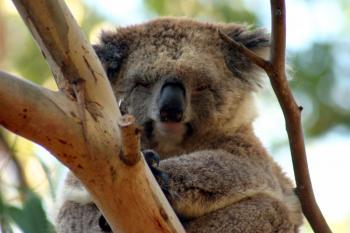
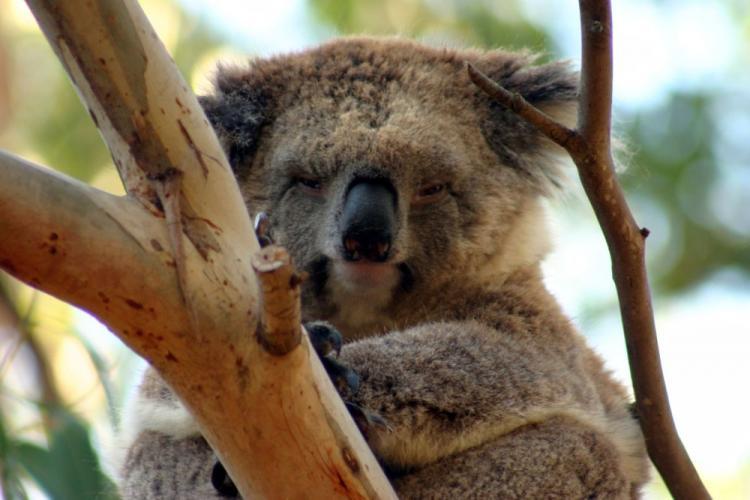
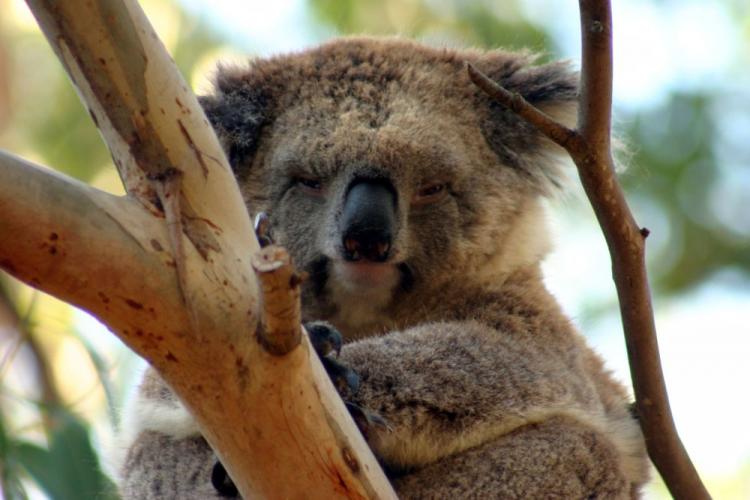
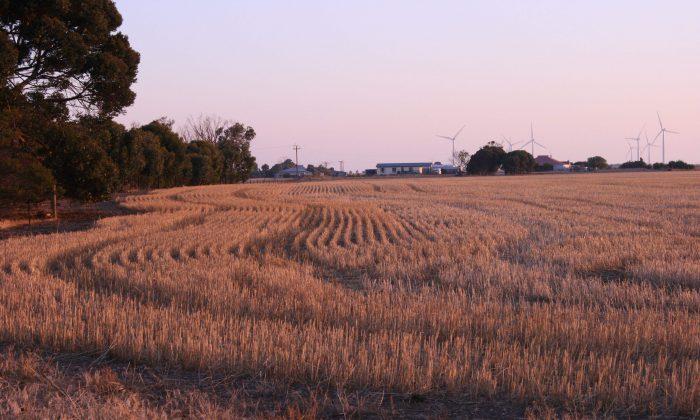
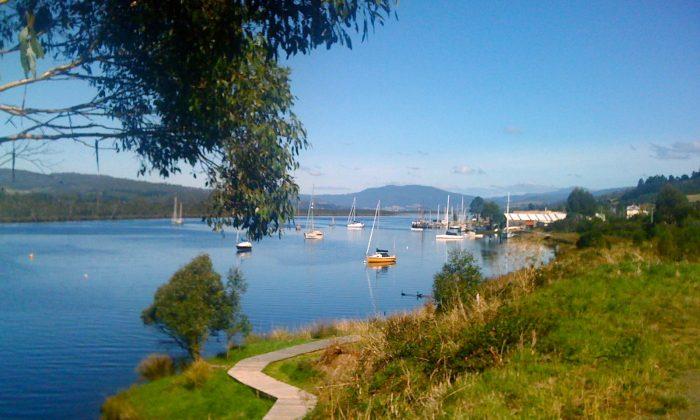
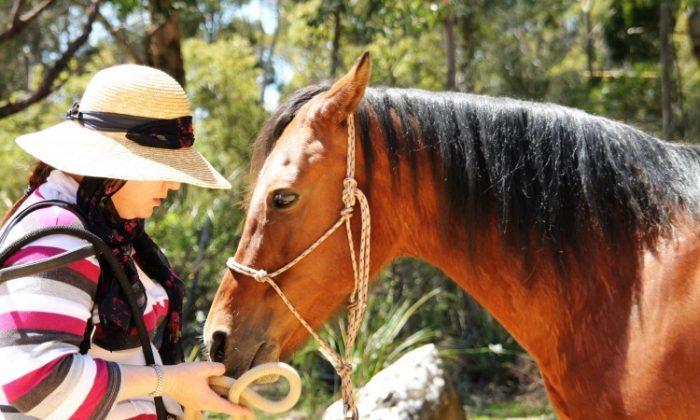
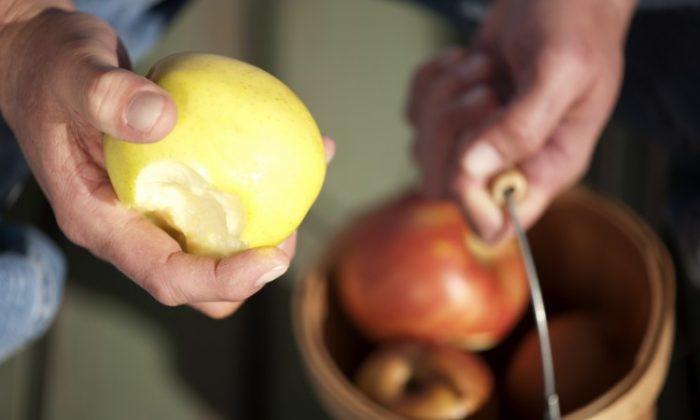
Friends Read Free